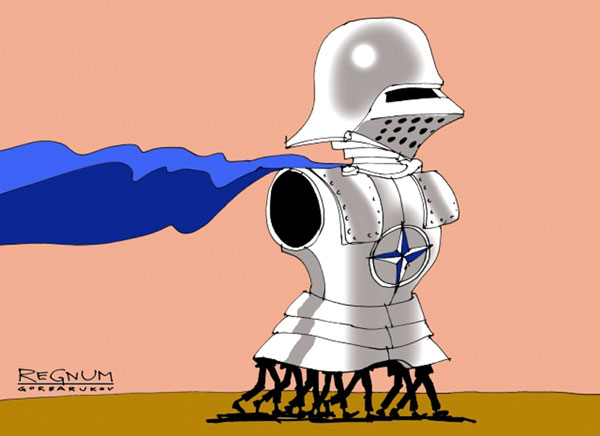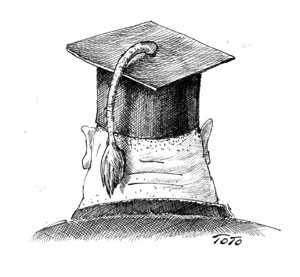IS KOCHARYAN THE BELLWETHER OF ARMENIAN-RUSSIAN RELATIONS? By Edmond Y. Azadian While Armenians are carried away with euphoria following the peaceful December 9 elections, which placed the victory of the Velvet Revolution on legislative tracks, it seems a potential crisis is brewing in Armenian-Russian relations. When Armenia"s second president, Robert Kocharyan, was first incarcerated in July then released by court order, he had received a congratulatory message from Russia"s President Vladimir Putin. The Russian president had demonstrably signaled that Kocharyan"swell-being mattered to him. It looks like the signal was not missed by Prime Minister Nikol Pashinyan camp, which chose the same venue to send a message to Russia that Kocharyan"s case was a domestic issue and that Armenia, as a sovereign country, would not bargain away its independent judiciary with any power. Thus, Kocharyan was put in jail once again, two days before the parliamentary elections took place this month. Some people interpreted the action as a measure to induce fear before the elections, while othersconnected it to souring Armenian-Russian relations. Yet others thought Kocharyan deserved what he got as the culprit who ordered the shooting deaths of protestors on March 1, 2008, following the presidential election which brought Serzh Sargsyan to power. Pashinyan and his team are not naտve;they knew what they were doing and they had already calculated the repercussions. The evidence of their awareness was the leaks of phone conversations between the security authorities and Pashinyan about another case which represents a different dimension affecting Armenian-Russian relations, that of Yuri Khachaturov. Khachaturov was the secretary general of the Collective Security Treaty Organization (CSTO), and his term extended through 2022. He was charged on November 2 with "overthrowing Armenia"s constitutional order" during the same March 1, 2008 response to protestors. The officials have expressed their apprehension that sacking Khachaturov may ruffle some feathers in Moscow but they are being ordered to carry through the operation. And indeed, the reaction was harsh; Armenia was blamed for hurting the prestige of CSTO. But that was also a self-inflicted wound because the secretary of CSTO has a vantage point of observing and reviewing all the military operations in that alliance. If the consequences of the action were indeed evaluated, the net gain for the country has yet to be divulged. The chorus of robotic and supine media isapplauding this move as a courageous demonstration of the country"s independence. Pashinyan is riding high on a wave of popularity. People are enjoying all the freedoms that he has promised through the Velvet Revolution. But any group or any media outlet which inflates his sense of infallibility will not be doing a favor to Pashinyan nor to Armenia. Today Armenia is in a standoff with Russia. Following the December 9 elections, the US State Department and the leaders of Europe all congratulated Pashinyan for his landslide victory and there is unanimous approval for the democratic standards exercised during those elections. President Putin, who congratulated Serzh Sargsyan in 2017, the very next morning after the election, has kept silent thus far. This silence resonates louder than any message that the Kremlin is not pleased with the results of the election, nor does it approve of the direction of the policies that the Pashinyan government is pursuing. After a week of silence,the Foreign Ministry spokesperson Maria Zakharova made a curt statement that Russia was "disposed to constructive dialogue" with Armenia, without any congratulatory message, while Sergey Lavrov, the Russian Foreign Minister, on a state visit to Baku informed Azeri President Ilham Aliyev that "Vladimir Putin sends his warm regards. He values your personal relationship, which helps to boost our strategic partnership, very highly." Ms. Zakharova added insult to injury when she was asked about Putin"s reluctance to issue a congratulatory message and retorted, "That looks like a woman asking a man, ‘do you love me?"" While Moscow is maintaining a deafening silence, it should be noted that all of Armenia"s so-called strategic allies at the Eurasian Economic Union (EEU) and CSTO have adopted the same stance. While CSTO is supposed to serve as a counterweight to the North Atlantic Treaty Organization (NATO), its members, unlike NATO members, are at each other"s throats or disagree on all issues except when they decide to oppose Armenia, all in unison. While President Putin seems visibly disturbed and has decided to observe total silence, another villain is in action— Belarus President Alexander Lukashenko. It seems that this Cold War relic has assumed the role of attack dog for the alliance and thus far, his attacks are directed at Armenia. Incidentally, Belarus and Kazakhstan are Armenia"sofficial strategic allies, but they have unabashedly promoted Azerbaijan"s interests within the alliance and the region. When the alliance held one of rotational sessions in Yerevan, President Nursultan Nazarbayev did not even bother to attend. Lukashenko is lobbying angry accusations and vulgar taunts at Pashinyan: "We are not the ones who created the scandal in the election of the secretary of CSTO. If Nikol Pashinyan were a wise person, we would resolve this question in a quick manner." On the other hand, he announced unilaterally that the issue of the election of the secretary general has been resolved at the session held in St. Petersburg. Stanislav Zas, the Belarus candidate, was to succeed Khachaturov as secretary. Pashinyan publicly refuted this statement because decisions within the alliance are reached through unanimous consensus and Armenia has not lent its support to that alleged election. Lukashenko"s verbosity has extended to a variety of issues, away from Kocharyan"s incarceration and Khachaturovplight. He has touched upon the weapons system called Polonez Multiple Launch Rocket System, sold by Lukashenko"s government to Azerbaijan, and from there he has taken another leap into an easy solution for the Karabakh conflict. He has blamed Armenia for refusing a "generous" offer that he had made in 2016 in Yerevan, by asking Armenia to cede 5 regions to Azerbaijan, without any counter action, only assuring that Belarus and Russia could introduce peacekeeping forces to prevent Azerbaijan from taking over the rest of Karabakh. After observing his erratic political conduct, the last thing Armenia should do is to give credence to Lukasheno"s assurances. The mood is somber in Armenia. Commentators are worried about where this standoff may lead. For better or worse, a historic fact has been established that it is in the interest of Russia to guarantee the existence and the security of Armenia. Of course, there are other voices that advocate leaning towards the West or even joining NATO, oblivious of the Georgian experience and the fact that Turkey is a powerful player in NATO. Turkey hasoccupied 30 percent of Cyprus since 1974 without repercussions. Recently, it grabbed some land from Syria and just three weeks ago, a Turkish general threatened to destroy another ally, Greece, in four hours andNATO has yet to speak against the comment. One of those pundits, who writes under the pen name SarkisArzruni (incidentally these people are called "grant eaters" in Armenia), has advised that there is no need to panic. Rather than waiting and wailing about why Putin has not extended his congratulations, let us take comfort in the fact and jump ship. Now that Armenia has resolved one of its major domestic problems, a new, very serious foreign policy complication has popped up which may undermine our hopes and Armenia"s drive to security and prosperity. | 






































